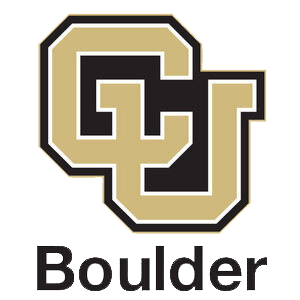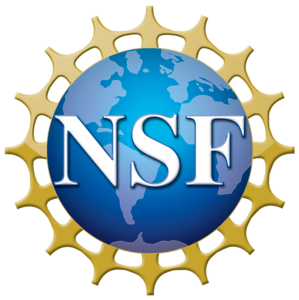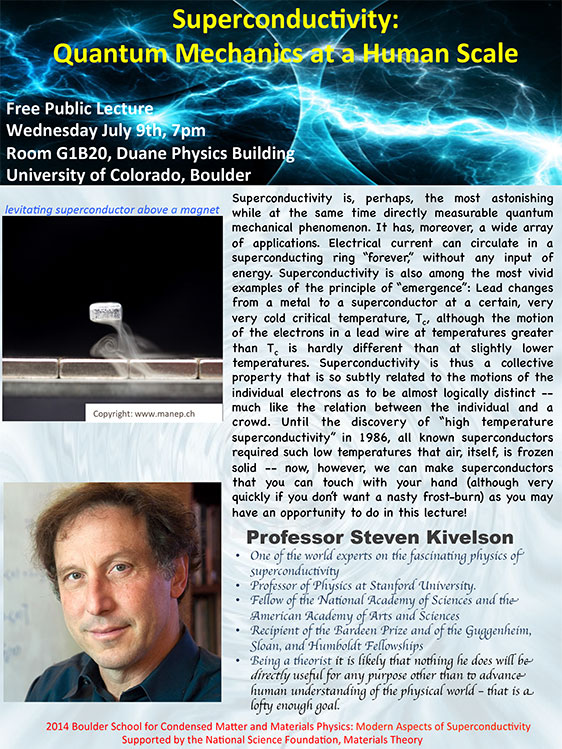June 30-July 25, 2014
Scientific Coordinators
 |
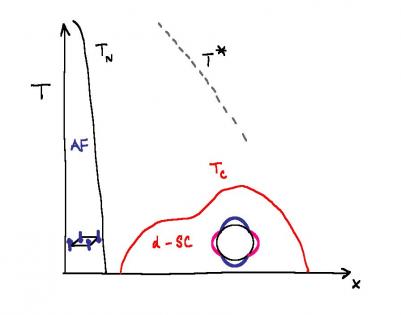 |
The 2014 Boulder school will concentrate on modern aspects of superconductivity. Superconductivity is a well-known phenomenon – it has been around for over 100 years, and BCS theory for conventional s-wave superconductors is over 50 years old. Over the last few decades, however, the field of superconductivity witnessed a remarkable renewal of interest in the physics community. A number of reasons exist for this, including the discovery of unconventional (not ordinary s-wave) superconductivity in cuprates, heavy-fermions, and organic superconductors, and, more recently, in Fe-pnictides and Fe-chalcogenides as well as the fact that superconductivity in all these materials likely originates from screened Coulomb interactions rather than from electron-phonon interactions. Another, arguably the most fundamental reason, is that superconductivity in these novel materials emerges from a normal state that is very different from a conventional Fermi liquid. Finally there is the hope, based on specific theoretical predictions and non-stop improvements of the experimental techniques, to obtain chiral superconductivity, which would breaks time-reversal symmetry and exhibit a wealth of fascinating properties that are highly sought after for nano-science applications.
Group Photo
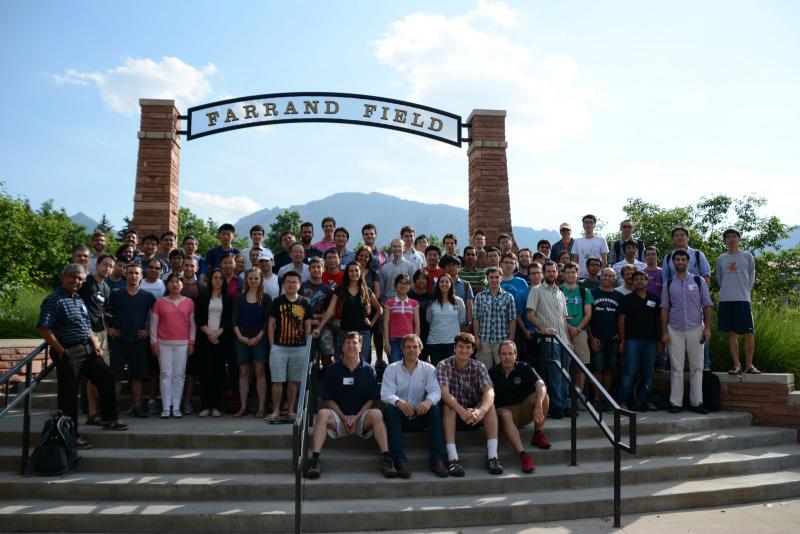
Public Lecture
Professor Steven Kivelson, “Superconductivity: Quantum Mechanics at a Human Scale” in Duane Physics Building, Rm. G1B20 on Wednesday, July 9, 2014 at 7pm. Click here for YouTube video.
Lecturers and seminar speakers
- Greg Boebinger, NHMFL, Tallahassee, FL
- Piers Coleman, Rutgers University
- Liang Fu, MIT
- Jenny Hoffman, Harvard
- Bernhard Keimer, Max-Planck Institute for Solid State Physics, Stuttgart
- Steven Kivelson, Stanford University
- John Martinis, UC-Santa Barbara
- Yuji Matsuda, Kyoto University, Japan
- Andrew Millis, Columbia University
- Joseph Orenstein, UC-Berkeley
- Arun Paramekanti, University of Toronto
- Mohit Randeria, Ohio State University
- Subir Sachdev, Harvard University
- Manfred Sigrist, Institute for Theoretical Physics, ETZ, Zurich
- Xiao-Gang Wen*, Perimeter Institute for Theoretical Physics, Canada
